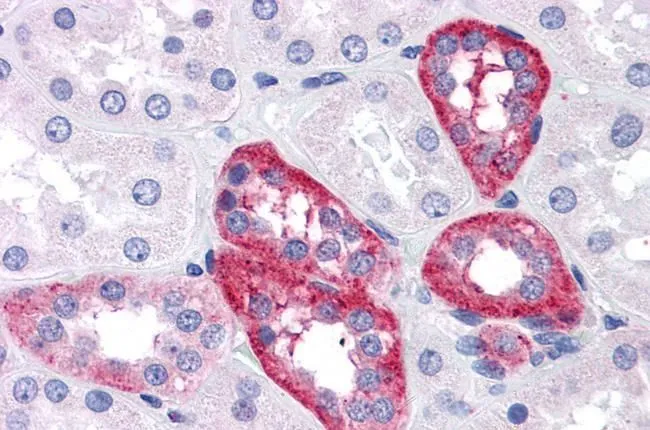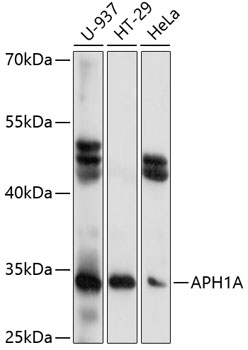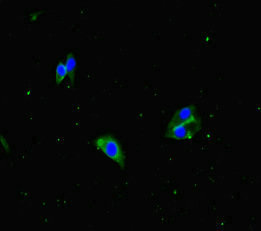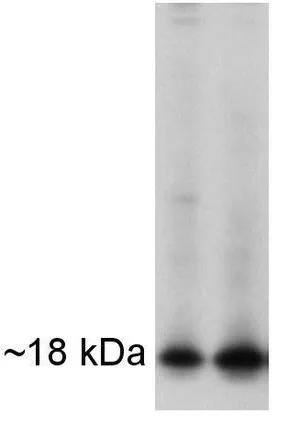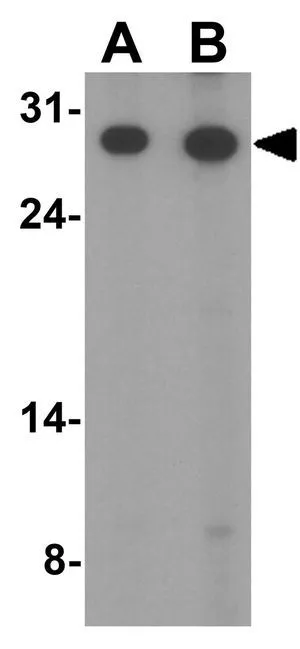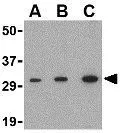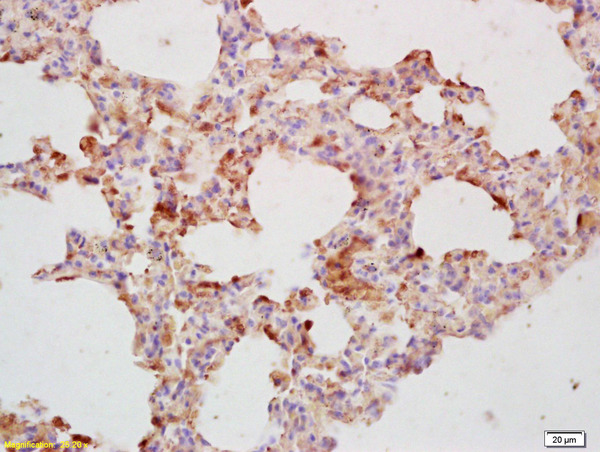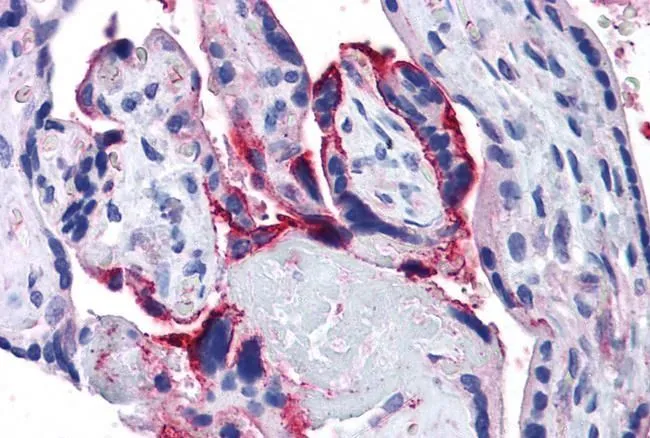
IHC-P analysis of human placenta using GTX89025 APH1A antibody, Internal. Antigen retrieval : citrate buffer pH 6 Dilution : 5μg/ml
APH1A antibody, Internal
GTX89025
ApplicationsWestern Blot, ImmunoHistoChemistry, ImmunoHistoChemistry Paraffin
Product group Antibodies
ReactivityHuman
TargetAPH1A
Overview
- SupplierGeneTex
- Product NameAPH1A antibody, Internal
- Delivery Days Customer7
- Application Supplier NoteWB: 0.05-0.1microg/ml. IHC-P: 5microg/ml. *Optimal dilutions/concentrations should be determined by the researcher.Not tested in other applications.
- ApplicationsWestern Blot, ImmunoHistoChemistry, ImmunoHistoChemistry Paraffin
- CertificationResearch Use Only
- ClonalityPolyclonal
- Concentration0.50 mg/ml
- ConjugateUnconjugated
- Gene ID51107
- Target nameAPH1A
- Target descriptionaph-1A gamma-secretase subunit
- Target synonyms6530402N02Rik, APH-1, APH-1A, CGI-78, gamma-secretase subunit APH-1A, APH1A gamma secretase subunit, anterior pharynx defective 1 homolog A, aph-1 homolog A, gamma-secretase subunit, aph-1alpha, presenilin-stabilization factor
- HostGoat
- IsotypeIgG
- Protein IDQ96BI3
- Protein NameGamma-secretase subunit APH-1A
- Scientific DescriptionThis gene encodes a component of the gamma secretase complex that cleaves integral membrane proteins such as Notch receptors and beta-amyloid precursor protein. The gamma secretase complex contains this gene product, or the paralogous anterior pharynx defective 1 homolog B (APH1B), along with the presenilin, nicastrin, and presenilin enhancer-2 proteins. The precise function of this seven-transmembrane-domain protein is unknown though it is suspected of facilitating the association of nicastrin and presenilin in the gamma secretase complex as well as interacting with substrates of the gamma secretase complex prior to their proteolytic processing. Polymorphisms in a promoter region of this gene have been associated with an increased risk for developing sporadic Alzheimers disease. Alternative splicing results in multiple protein-coding and non-protein-coding transcript variants. [provided by RefSeq, Aug 2011]
- ReactivityHuman
- Storage Instruction-20°C or -80°C,2°C to 8°C
- UNSPSC41116161

